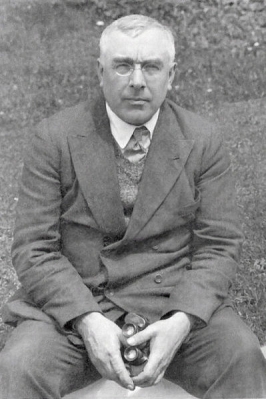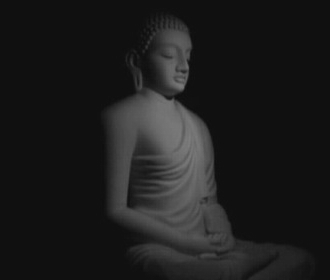Though this is a Buddhist-oriented site, I’m always open to genuine insight and love wherever it appears, and I certainly don’t think that the grandeur and richness of life can be encompassed by any view we might hold—Buddhist, Hindu, Christian, Jewish, atheist, agnostic, scientific, or whatever.
Recently I’ve been enjoying getting to know Peter D. Ouspensky, a Russian mathematician and philosopher who espoused many of the ideas and practices of George Gurdjieff, a Greek-Armenian mystic and spiritual teacher.
Here’s a short passage from Ouspensky on the meaning of life, which I found insightful:

P. D. Ouspensky
“Some say that the meaning of life is in service, in the surrender of self, in self-sacrifice, in the sacrifice of everything, even life itself. Others declare that the meaning of life is in the delight of it, relieved against ‘the expectation of the final horror of death.’
Some say that the meaning of life is in perfection, and the creation of a better future beyond the grave, or in future life for ourselves. Others say that the meaning of life is in the approach to non-existence; still others, that the meaning of life is in the perfection of the race, in the organization of life on earth; while there are those who deny the possibility of even attempting to know its meaning.
“The fault of all these explanations consists in the fact that they all attempt to discover the meaning of life outside of itself, either in the nature of humanity, or in some problematical existence beyond the grave, or again in the evolution of the Ego throughout many successive incarnations—always in something outside of the present life of man.
But if instead of thus speculating about it, men would simply look within themselves, then they would see that in reality the meaning of life is not after all so obscure. It consists in knowledge.”
Of course, Ouspensky had his views about how to “look within” and just what “knowledge”—self-knowledge—would be. I think his ideas about “self-study” are brilliant and readily applicable by anyone, anytime, anywhere.
What he says echoes that great aphorism of Ancient Greece: Know Thyself! That great truth echoes in the lives and words of all of mankind’s great spiritual teachers from Buddha to Ramana Maharishi to J. Krishnamurti, to mention just a few. Knowing ourselves is at once the simplest and the hardest thing to do.
No matter how much guidance and inspiration we get from spiritual teachers, masters, gurus, or saints, we finally have to roll up our sleeves and do the work ourselves. We finally have to see for ourselves what the truth is.
In the end, this doesn’t mean “one truth for me, and another for you.” Rather, every genuine insight into truth is an awakening to what is. If we believe something to be true that is at odds with what really is, experience will sooner or later reveal the error. Untruth always leads to suffering, but even the suffering of our false beliefs and views can become occasions for awakening to what is.
 The more we are open to truth, to what is, the more confidence we get in our ability to see for ourselves what is true and what isn’t. We don’t have to look to outside authorities, but to our experiences, and to our hearts, and to our awakening minds. No wonder the Buddha said:
The more we are open to truth, to what is, the more confidence we get in our ability to see for ourselves what is true and what isn’t. We don’t have to look to outside authorities, but to our experiences, and to our hearts, and to our awakening minds. No wonder the Buddha said:
“Be ye lamps unto yourselves, be a refuge to yourselves. Hold fast to Truth as a lamp; hold fast to the truth as a refuge. Look not for a refuge in anyone beside yourselves.
And those, who shall be a lamp unto themselves, shall betake themselves to no external refuge, but holding fast to the Truth as their lamp, and holding fast to the Truth as their refuge, they shall reach the topmost height.”
♥♥♥
No comments:
Post a Comment